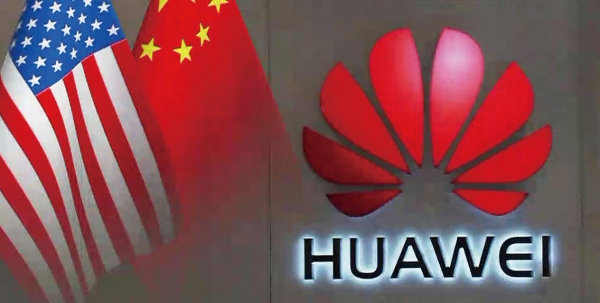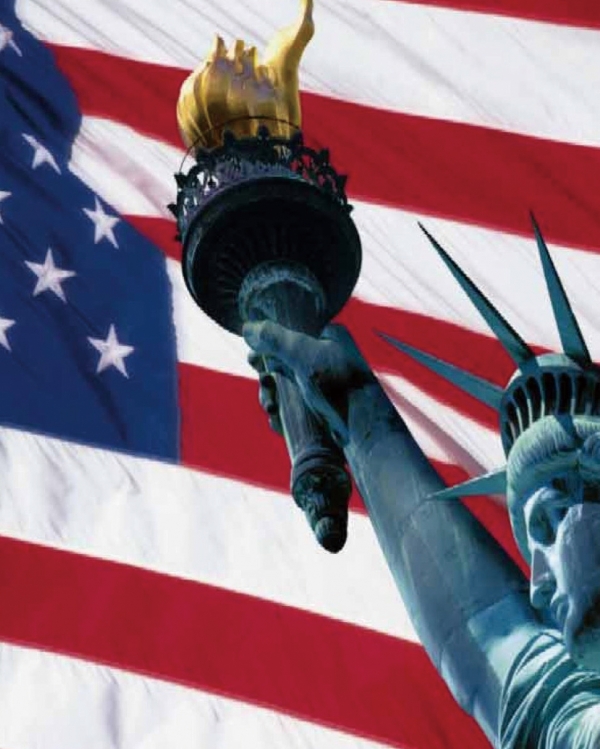
워싱턴 = 미국의 주요 정치세력 간에 별 이견이 없는 한 가지 주제가 있다면 그것은 미국의 대중 정책이다. 공화당과 민주당 모두 시진핑 주석 체제 하에 중국의 부상은 전 세계가 아니더라도 미국에 대한 분명하고 현재의 위협으로 보고 있다.
공화당과 민주당 모두 일련의 미국 대통령들이 중국 공산당과 집권 정권을 비난하지 않으며 외국인 투자, 외국인 방문객, 외국인 관광 심지어 외국 음악과 영화를 개방하며 중국과 친해지기 위해 할 수 있는 모든 것을 다한 후에 그러한 깨달음을 얻었다. 미국 지도자들은 미국의 지지를 받는 국민당이나 장개석 휘하의 민족주의자들을 상대로 1949년 10월 1일 71년 전 공산당을 승리로 이끌었던 마오쩌둥의 극렬하게 대립하던 정책을 종식시킨 개혁파 덩샤오핑을 높게 평가했다. 덩은 1989년 6월 천안문 광장 시위에서 수백 명의 민주인사들을 학살하는 것을 승인했을지 모르지만 공산주의 하에서 중국을 자본주의로 바꾼 것으로 더 잘 기억되고 있다.
도널드 트럼프 대통령의 코로나 대응에 대한 혹독한 비판과 인종차별과 경찰의 만행에 대한 폭력시위로 지배되는 대선 유세에서 진화하는 미국의 대중국관은 대부분의 미국인들에게 어필되지 못한다. 그럼에도 불구하고 트럼프에 대해 비판적인 입장을 보이는 CNN 앵커 짐 스시우토가 지적한 바와 같이 이슈가 된다. 그는 최근 저서에서 “트럼프 대통령은 결국 중국에 대한 미국의 존경을 끝냈다”고 썼다. “수십 년 동안 그리고 공화 민주 양당의 대통령 집권 하에 미국은 특히 경제 분야에서 중국의 잘못된 행동을 용서해왔다”고 말했다. 중국에 대한 미국의 우려는 남중국해 이슈, 제재에도 불구하고 북한 정권 지지, 불공정 무역정책, 기술과 지적재산권 도용에 이르기까지 다양하다.
‘중의 위협’ 트럼프보다 더 강경한 바이든
화웨이가 5G 네트워크 확산과 미국이나 세계 다른 지역에서 생산되는 제품들과 경쟁하는 컴퓨터 칩 개발의 세계 선두 주자가 되기 위한 시도로 화웨이가 부상한 것처럼 모든 분야에서 우위를 점하려는 중국의 시도를 단적으로 보여주는 것은 없다.
트럼프 대통령이 시 주석과 좋은 관계를 말해온 반면 미 상무부는 미국 기술을 이용한 반도체 업체에 대한 판매를 금지하는 제재로 화웨이를 전 세계적으로 무력화시키려 하고 있다. 미국인들은 화웨이가 결국 중국을 세계 최고의 반도체 제조업체로 만들려는 캠페인에서 자체 버전을 개발하기 위해 칩 기술을 훔칠 것이라고 확신한다. 영국은 화웨이가 만든 5G 장비가 국가 안보에 위협이 된다는 이유로 전면 금지했다.
민주당이 모든 면에서 트럼프를 비판하는 것을 좋아하지만 중국에 대한 기본적인 철학적 차이는 별로 없다. 민주당 후보인 조 바이든은 중국에 대해 전면적인 발언을 내놓지는 않았지만 민주당 정강정책은 “트럼프 대통령과 달리 우리는 미국의 지적재산권을 훔치려는 중국과 다른 국가 행위자들에 맞서 중국 등 다른 나라들의 중단과 우리 미국 회사를 상대로 한 사이버 스파이 활동을 중단할 것”을 단호히 요구한다.

최소한 화웨이의 가장 위협적인 기술 도용에 대처하는 데는 대통령으로서 바이든이 트럼프보다 더 강경한 태도를 보일 수도 있다. 사실 바이든 주도의 정부는 중국의 막대한 무역흑자를 덜 강조하면서 비밀의 도용에 초점을 맞추는 것을 선호할 수도 있다.
이 과정에서 바이든은 트럼프가 미국 산업과 경쟁하는 중국산 제품에 부과한 관세 일부를 없앨 수도 있다. 미국 농부들이 경악하는 가운데 중국은 미국산 농산물 수출품, 특히 콩과 돼지고기에 대한 관세 보복을 단행했다.
중국을 경계하는 유권자들에 어필하는 공화·민주
민주당과 공화당은 모두 화웨이의 위협과 국가 안보뿐 아니라 기술적 우위에 대한 함의에 매우 민감하다.
그들은 또한 미국 제조업체들과 경쟁하고 있는 중국 제품에 대해 걱정하는 유권자들에게 어필하기를 좋아하며 그들은 그들의 가장 큰 해외 시장을 잃을 것을 두려워하는 농부들의 표가 필요하다. 어느 당도 백악관 주인이 누가 되든 차기 미국 행정부 하에서 더 악화 될 싸움에 대한 쉬운 해결책을 내놓지 못하고 있다.
짐 스시우토는 그의 전작 ‘그림자 전쟁: 미국을 격퇴하기 위한 러시아와 중국의 비밀 작전’과 관련해 CNN과의 인터뷰에서 “안보 우려는 진실이며 화웨이 문제에 맞서는 것은 위대한 일”이라고 직설적으로 말했다.
실제로 앞서 베이징 주재 미국대사관에서 외교관으로 근무했던 스시우토는 “공화당과 민주당으로부터 이런 말을 듣는다”고 말했다. 그렇다고 해서 여유도, 융통성도 없는 것은 아니다. 트럼프 대통령은 그동안 중국 동영상 공유 앱인 틱톡의 미국 내 영업 허용 여부를 타진해왔다.
이 거래는 오라클과 월마트라는 미국의 두 거대 기업이 틱톡글로벌을 별도 법인으로 구성하는 것을 요구하고 있다. 그러나 틱톡은 중국 모회사인 바이트댄스의 자회사로 남아 있다.
모든 의혹과 공포를 고려할 때 트럼프와 바이든 모두 화웨이에 대한 규제를 완화하는 쪽으로 기울지는 않을 것이다. 그러나 미래는 여전히 예측하기 어렵다. 트럼프 대통령이 어떤 행동을 할지, 압박 수위를 높여야 할지, 아니면 협상을 위한 그의 탐색에 긴장을 늦춰야 할지 결코 확신할 수 없다.
트럼프 이상으로 바이든은 트럼프가 대통령이 되자마자 내팽개친 환태평양경제동반자협정(TPP) 등 다자간 해법을 바랄 수도 있다.어떤 일이 있어도 공화 민주 양당은 화웨이가 이미 아시아에서 하고 있는 것처럼 5G를 장악하고, 비밀을 훔치고, 미국에서 중국 파워를 발전시키는 것을 원하지 않는다.

Trump and Biden Share Common Concerns on China and Huawei, a Menace to the U.S. and the WorldTrump and Biden Share Common Concerns on China and Huawei, a Menace to the U.S. and the World
WASHINGTON = If there’s one topic on which it’s hard to find serious disagreement between major American political forces, it’s U.S. policy toward China. Both the Republican and Democratic parties see the rise of China under President Xi Jinping as a clear and present menace to the U.S. if not the entire world.
Republicans and Democrats alike have come to that realization after a series of American presidents had done all they could to get along with China as the country opened up to foreign investment, foreign visitors, foreign tourism, even foreign music and movies as long as they did not criticize the Chinese Communist Party or its ruling regime. American leaders had a high opinion of Deng Xiaoping, the reformist who ended the intensely confrontational policy of Mao Zedong, who had led the Communist Party to victory 71 years ago, on October 1, 1949, over the American-backed Kuomintang or Nationalists under Chiang Kai-shek. Deng may have authorized the massacre of hundreds of the regime’s democratic foes in the protest on Tiananmen Square in June 1989 but is better remembered for having turned China to capitalism under communism.
The evolving American outlook toward China is hardly on the minds of most Americans in a presidential campaign dominated by harsh criticism of President Donald Trump’s response to the coronavirus and violent protests over racism and police brutality. Nonetheless, it’s an issue, as noted by Jim Sciutto, a CNN anchor who’s often critical of Trump. “As president, Trump – finally – ended the United States’ deference to China,” he writes in his latest book, “The Madman Theory: Trump Takes on the World.” “For decades and under presidents of both parties,” Sciutto tells us, “the United States had excused Chinese misbehavior, particularly in the economic sphere.”
U.S. concerns about China range from China’s claim to the South China Sea to support of the North Korean regime despite sanctions to unfair trade policies to theft of technology and intellectual property. Nothing epitomizes China’s attempt at dominance in all these fields more than the rise of Huawei in a global bid to become the world’s leader in the spread of 5G networks and development of computer chips competitive with those produced in the U.S. and elsewhere.
While Trump has spoken well of his relationship with Xi, the U.S. commerce department is trying to cripple Huawei worldwide by sanctions banning the sale to the company of semiconductors using American technology. Americans are convinced Huawei would steal the technology for the chips in order to develop its own versions in a campaign that would eventually make China the world’s leading semiconductor manufacturer. Britain has followed up by banning all 5G equipment made by Huawei on the grounds that it poses a threat to national security.
Much as the Democratic Party loves to criticize Trump for just about anything, it’s difficult to find basic philosophical differences over China. Joe Biden, as the Democratic candidate, has not come out with sweeping pronouncements on China, but the Democratic Party platform declares flatly, “Unlike President Trump, we will stand up to efforts from China and other state actors to steal America’s intellectual property and will demand China and other countries cease and desist from conducting cyberespionage against our companies.”
In other words, Biden as president may want to be even tougher than Trump, at least in dealing with theft of technology in which Huawei poses the greatest threat. In fact, a Biden-led government might prefer to focus on theft of secrets while placing less emphasis on China’s enormous trade surplus. In the process, Biden might remove some of the tariffs that Trump has imposed on Chinese products that compete with American industry. The Chinese, to the consternation of American farmers, have retaliated with tariffs on American agricultural exports, notably soybeans and pork, two staples of any Chinese diet.
Democrats and Republicans are all highly sensitive to the Huawei threat and its implications for technological supremacy as well as national security. They also like to appeal to voters concerned about Chinese products that are competing with American manufacturers, and they need the votes of farmers fearful of losing their biggest overseas market. Neither party has come up with easy solutions to a struggle that’s going to get worse under the next U.S. administration regardless of who’s in the White House.
Jim Sciutto, in an interview with CNN regarding his previous book, “The Shadow War: Inside Russia's and China's Secret Operations to Defeat America,” said bluntly that “security concerns are genuine, and to confront the Huawei issue is the great thing to do.” In fact, said Sciutto, who previously served as a diplomat in the American embassy in Beijing, “You hear this from Republicans and Democrats.”
That’s not to say, however, that there’s no leeway, no flexibility. Trump has sought to resolve the issue of whether to let Tik Tok, the Chinese video-sharing app, operate in the U.S. The deal calls for two U.S. giants, Oracle and Walmart, to form TikTok Global as a separate entity. The Chinese company ByteDance, however, remains the parent of what remains a mere subsidiary.
Considering all the suspicions and fears, neither Trump nor Biden as president would be inclined to relax curbs on Huawei. The future, though, remains hard to predict. One can never be sure what Trump might do, whether to increase pressure or ease up in his quest for a deal. Biden, more than Trump, might hope for multilateral solutions such as the Trans-Pacific Partnership that Trump spurned as soon as he became president.
Whatever happens, Americans of both parties do not want Huawei gaining control over 5G, stealing secrets and advancing Chinese power in the U.S. as it’s already doing in Asia.
번역 미래한국 편집부
외부게재시 개인은 출처와 링크를 밝혀주시고, 언론사는 전문게재의 경우 본사와 협의 바랍니다.


